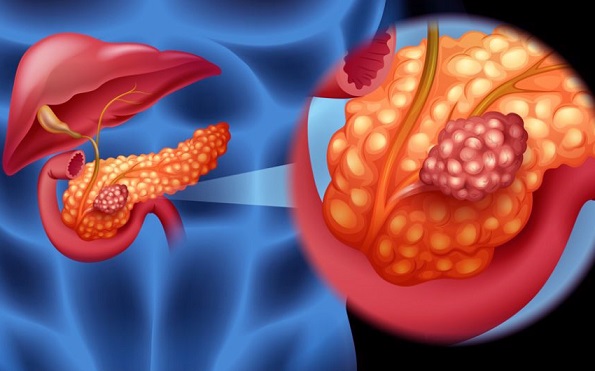Nikhil Prasad Fact checked by:Thailand Medical News Team Nov 19, 2025 3 months, 6 days, 1 hour, 31 minutes ago
Medical News: Emerging microRNA Therapy Offers Fresh Hope for Pancreatic Cancer Patients
Pancreatic cancer remains one of the deadliest cancers worldwide, largely because this disease grows silently and resists most existing treatments. Scientists from multiple leading Mexican research institutions have now uncovered a promising approach that focuses on disabling the most dangerous cells inside pancreatic tumors. These cells, known as pancreatic cancer stem cells, are few in number but play the largest role in driving tumor growth, relapse and resistance to chemotherapy. In this
Medical News report, researchers show that two tiny genetic regulators called microRNAs, Let-7b-5p and miR-24-3p, may help weaken these stubborn cancer stem cells and make them far more vulnerable to treatment.
 MicroRNAs Show New Hope Against Pancreatic Cancer
Researchers Identify Key Weaknesses in Cancer Stem Cells
MicroRNAs Show New Hope Against Pancreatic Cancer
Researchers Identify Key Weaknesses in Cancer Stem Cells
The scientists involved in the work are from CINVESTAV-IPN, Universidad Autónoma Metropolitana, Instituto Politécnico Nacional, Universidad Nacional Autónoma de México and Instituto Mexicano del Seguro Social. They first examined how cancer stem cells behave inside laboratory-grown pancreatic tumors. They discovered that these stem cells suppress 31 specific microRNAs. Ten of these missing microRNAs were found to control major pathways that keep cancer cells in a youthful, aggressive and therapy-resistant state.
Two of the most important were Let-7b-5p and miR-24-3p. When these microRNAs were restored in cancer stem cells, several powerful cancer-promoting pathways, including Wnt, MAPK, PI3KAKT and TGF-beta, were greatly weakened. This caused the stem cells to lose their ability to self-renew and pushed them to begin maturing into normal pancreatic cell types.
MicroRNAs Trigger Tumor Weakening and Greater Drug Sensitivity
The study shows that boosting Let-7b-5p or miR-24-3p caused cancer stem cells to shrink in number, form smaller tumor spheres, slow their overall growth and lose much of their ability to migrate and invade surrounding tissue. The treated cells also became far more sensitive to gemcitabine, the most commonly used chemotherapy drug for pancreatic cancer, in some cases up to five times more sensitive than untreated cells. In mouse experiments, tumors engineered to express these microRNAs grew dramatically slower and were several times smaller than untreated tumors.
What This Means for Future Treatment
These findings suggest that restoring natural microRNAs could one day weaken pancreatic cancer at its roots by disabling the very cells that cause treatment failure. Although much more research is needed before human trials, the discovery opens a new direction in cancer therapy. By forcing cancer stem cells to behave more like normal cells, doctors may eventually improve treatment outcomes and reduce relapse in this extremely deadly disease. Combining microRNA-based therapies with existing drugs may also amplify the effectiveness of current treatments.
Conclusion<
br />
This study provides strong evidence that Let-7b-5p and miR-24-3p act as natural suppressors of pancreatic cancer stem cell activity. When restored, they shut down several major cell-growth pathways, reduce stem cell numbers, increase drug sensitivity and slow tumor growth in living models. These discoveries highlight a promising therapeutic strategy that may help overcome longstanding drug resistance in pancreatic cancer and give patients a better chance at long-term survival.
The study findings were published in the peer reviewed International Journal of Molecular Sciences.
https://www.mdpi.com/1422-0067/26/22/11066
For the latest on Pancreatic Cancer, keep on logging to Thailand
Medical News.
Read Also:
https://www.thailandmedical.news/articles/cancer
